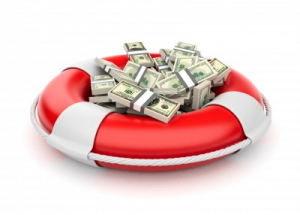
Using your emergency savings to pay off credit card debt may look like a good idea at first glance, but there are some things to consider, according to Jean Chatsky of Bankrate.com.
Size Of Debt
If the size of the fund meets or exceeds the amount of the debt, it may be all right, but you should then begin to rebuild the emergency cushion. Then if the emergency comes, you are still ready.
Use Fund Not Credit Card For Emergencies
Using the emergency stash is preferable to having to meet an emergency with a credit card, Chatsky says.
Rebuild Fund When Used
If for whatever reason, paying off debt or meeting an actual emergency, your cushion is depleted, start immediately to build it up again. Set a goal and faithfully infuse new funds into it. Think of three categories: minor emergencies such as small car or home repairs and health care deductibles. Major repairs and having to meet a health care max would fall into the second category. Job loss is the third unexpected calamity that might demand that you dip into the emergency fund.
Emergency Savings Calculator
The old goal of saving enough to pay expenses for six months is a rule of thumb, but you may want to assess your own situation and make an upward adjustment. HelloWallet has a calculator to guide you if you need help making an analysis. Bankrate also has an emergency savings calculator.
Automatic Transfers
If you use a calculator and the recommended savings seem beyond reach, begin with the small emergency category, then move up as you are able. Reaching small goals gives you incentive to work for a higher level. Automatic transfers from your bank account into your emergency fund is one way to alleviate some of the pain. Don’t give yourself the opportunity to spend what you intended to save. If you wait until the end of the month to cough up the emergency fund payment, it is less likely to happen.
Bottom line: An emergency account is essential to a healthy personal finance scheme. Give it some priority.



